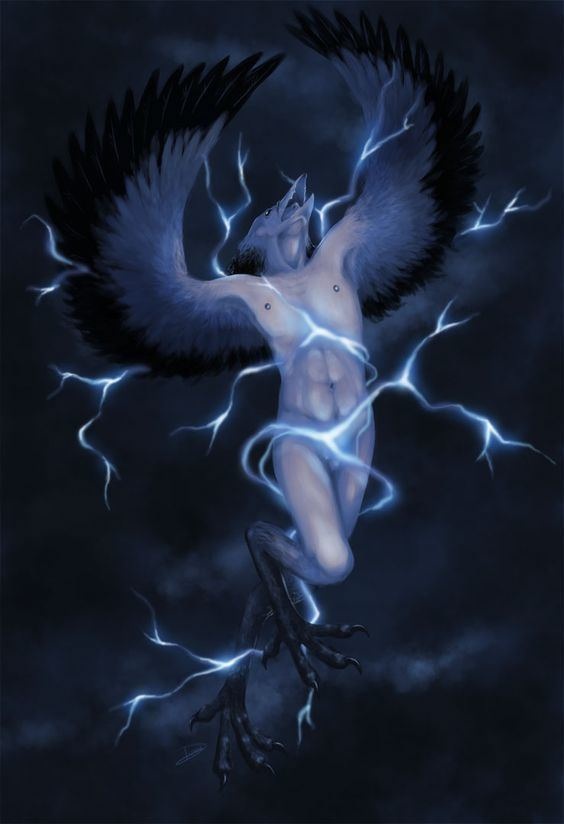In January of 2015 our group of Fiction Unbounders launched this blog with the intent to “celebrate and explore great writing in speculative fiction” and to create “a space where genre and ‘the Western canon’ mean nothing next to story, imagination and quality.” Since that time we’ve witnessed Kazuo Ishiguro, author of two works of speculative fiction—Never Let Me Go and The Buried Giant—win the 2017 Nobel Prize in Literature. And now, out this spring, is Black Leopard, Red Wolf, a new work of speculative fiction (the first of the Dark Star trilogy) from the 2015 winner of the Man Booker prize—Marlon James.
When asked in an interview his thoughts on why the literary world continues to sneer at genre writing James replied:
“Make no mistake, there’s formula detective fiction, there’s formula science fiction…but there’s formula literary fiction too. It’s genre snobbery that we’re only ready to acclaim stuff that’s of the genre but different in some way. It’s sci-fi but, it’s fantasy but…I didn’t want to write a but.”
Yes, my intrepid speculative-fictophiles, feel free to shout your barbaric yawp over the roofs of the world.
We love this kind of story. We can even label it—African Game of Thrones.
But James unravels that comparison in the first two sentences of the book. We learn that the quest in which we are about to engage for 600+ pages, has failed—“The child is dead. There is nothing left to know.”
At the opening Tracker has been imprisoned, accused of murdering the child, the heir to the throne. He’s being questioned by a priest, a Grand Inquisitor. By the end of the first paragraph Tracker has admitted that he yearned to kill the child himself, outlining the details of the weapons he would have used, the play-by-play of how he would’ve watched with glee as life departed from the boy’s body. By the end of the fifth page our supposed hero has shared that he’s recently embedded a knife in the throat of a young boy in the cell with him.
This guy will light up your blood and then drink it. As an added bonus you are mad for him until your dying day. Ipundulu—Lightning Bird
Put on your boots. This is literary speculative fiction, my friends, not formulaic. And Marlon James is not afraid to flex his colossal talent. There are betrayals and non-heroic motives. There are untagged lines of dialogue, scene changes with no transitional explanation and chapters that open with characters identified by only pronouns.
Keep reading. If only to watch everything you thought would happen, including the traditional tropes of love and family, sex and rape, liquefy and pour down the wall after the manner of Tracker’s fellow quester, the river goddess, Bunshi.
Fair warning: There is violence. Once the quest commences the violence increases. The violence is graphic and too frequent and unapologetic and does not discriminate. In the same way violence often manifests in real life for lots and lots of people.
The plot thwarts summarization. Here again James resists conformity, choosing to make the action driven more by situation than the over-arching intention of a purposeful quest. To gain the full experience of the adventure the way James has written it, try letting yourself experience the tale without first reading a synopsis. Let yourself be surprised by the tangents and shifts. Relinquish control, allow the rich, lyric writing, the nuanced dialogue, the surprising contortions of plot to draw you, body, mind and soul into this huge, complicated, lush, betraying world.
For those of you who just have to know about the plot, there are reviews out there to satisfy your craving: plenty of hoorahs, a few mehs, and one must-read conversation about genre between Marlon James and Victor LaValle, co-editor of the speculative fiction anthology, A People’s Future of the United States, which Fiction Unbound will review in April.
In my perusal of other reviews, one recurring theme on the not-so-positive side resonated with me—the story, many women argued, was misogynistic. The female characters always seemed to be untrustworthy witches, hideous crones, and/or liars. Even Tracker’s mother is unworthy of a positive word from him. This aspect of our hero’s personality caused some female readers to put the book down without finishing it.
But this is a literary work by a Man Booker winner. It deserves a deeper look into what might be motivating our protagonist, Tracker, to be so hostile toward women. Here’s a theory I’ve developed that you can prove or disprove as you read this untamable tale:
Early on in the story, Tracker finds out that the man he grew up calling father was really his grandfather who took Tracker’s mother as his wife when Tracker’s father died. For some days after receiving this news Tracker is devastated. Then he becomes angry and disgusted with both his grandfather and his mother. From then on, whenever he encounters a female, he’s combative and insulting, even if they’re trying to just talk to him, as in this passage between Bunshi and Tracker:
“Have you been spying on us, river witch?”
“Is every woman a witch to you, Wolf-Eye?”
“And what of it?”
Bunshi then takes aim at the root of Tracker’s antagonism:
“All you know of women is your mother jumping up and down your grandfather’s cock, yet you blame all womendom for it.”
Later in the story Tracker’s lover, Mossi, confronts him about his treatment of one of their fellow questers, Sogolon:
“Maybe you bear hatred for women.”
“Why would you say that?”
“I’ve never heard you speak good of a single one. They all seem to be witches in your world.”
“You don’t know my world.”
“I know enough. Perhaps you hate none, not even your mother. But tell me I lie when I say you always expected the worst of Sogolon. And every other woman you have met.”
In the second to the last section of the book Tracker’s antagonism toward women finally softens. James breaks with the style of the rest of the novel and writes the entire section as a prose poem. The Grand Inquisitor brings in a griot (a traveling poet) to tell a part of Tracker’s life he refuses to talk about. Toward the end there’s a beautiful stanza where Tracker reconciles with his mother. It is one of the most poignant passages in the book, written with the emphasis and passion of repetition:
And he look at her like he have something to say
And his mouth quiver like he have something to say…
And she stoop down and touch his cheek
One of your eyes didn’t come from me, she say
and what come out of his mouth was a wail
And he wail for his mother
And he wail for his mother
And night come for day
And day come for night
And still he wail.
It is written like an epiphany, as if James wants the reader to see this reunion with his mother as the opening for his reconciliation with all women.
But I believe this moment of uncharacteristic emotion and forgiveness for Tracker is not the real epiphany. The pivotal reconciliation actually happens two pages earlier, and gives insight into a hidden, deeper, inciting reason why Tracker despises women throughout most of the book.
To understand this we must go back to the first section of the book, a scene in which Tracker’s uncle shows him that other boys in the tribe are circumcised but Tracker is not. His uncle explains, using a newly circumcised boy to demonstrate:
“In the beginning we are all born of two… You are man and you are woman, just as girl is woman and she is man. This boy will be a man, now that the fetish priest has cut the woman away…
And the girl must have the man deep inside her cut out of her neha for her to be a woman…
…the man who is also woman and the woman who is also man, is a danger. It is too late. You have grown too old and will be both man and woman…
…this other is in you and will make you other. Like the men who roam the lands and teach our wives woman secrets. You will know as they know. By the gods, you might lay as they lay.”
And Tracker thinks to himself:
“I did not tell him that the woman was already raging inside me and I desired her desires, but otherwise did not feel like a woman for I wanted to hunt deer, and run and sport.”
This issue surfaces several more times throughout the story—others make the observation that Tracker never had the woman part of him cut away and that must be why he sleeps with men. Tracker always takes these comments as insults.
The prose poem relates the only part of Tracker’s life where he was at peace. He’s living with his beloved, Mossi, and they’re caring for a group of misfit children. For the first time in his life he has a family that is built on love, not betrayal. It is during this time that he decides—if he is to be the man he’s always wanted to be, he must get rid of the woman part of himself and be circumcised. He asks a nearby tribe to do the ceremony and goes through the several days of ritual. The final day comes, the cutter enters the hut. But Tracker grabs the cutter’s arm and says:
The sum of my days is all about cutting the woman out
Cut her out of me
cut her out of my mother
cut her out of all who walk and carry the world
And he look down at him maleness
crowned at the top by femaleness
and say
What in this make wrong,
how is this not the will of the gods
and if it’s not the will of the gods
then it is the will of me
All his life Tracker has been ashamed of the feminine part of himself and tries to mitigate this shame with aggression and hatred toward every woman, every feminine aspect of the external world, including his mother. But now that he has come to a place in his life where he’s accepted and loved by his made-family—his partner, Mossi, and the misfit children—he can finally drop the machismo, honor the feminine within him and accept every part of who he is.
Tracker’s reunion and acceptance of his mother then becomes a consequence of this first more internal and more profound, reconciliation. For me, these two very small moments allow Tracker to remain a sympathetic character even considering the violence he inflicts further on in the story.
But beware—James does not abandon all the tropes of literary fiction. Don’t expect Tracker’s bliss to last. And we won’t get to crawl inside Tracker’s head again for a long while, if ever. The next two books in the Dark Star trilogy will each be a retelling of this story from two other characters’ POV’s.












Cadwell Turnbull's new novel — the first in a trilogy — imagines the hard, uncertain work of a fantastical justice.